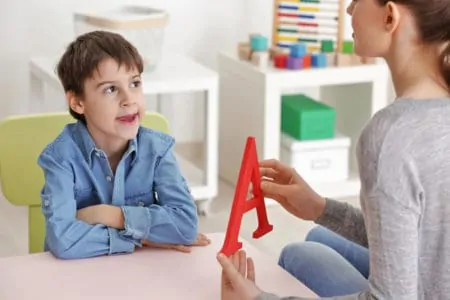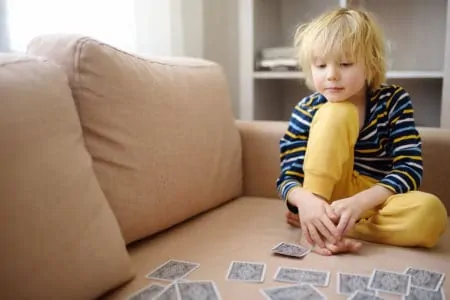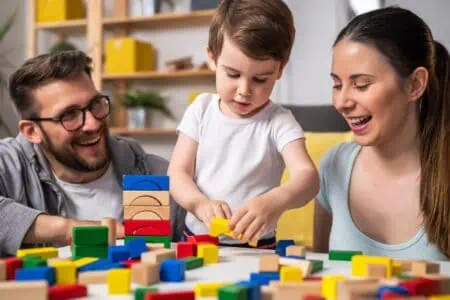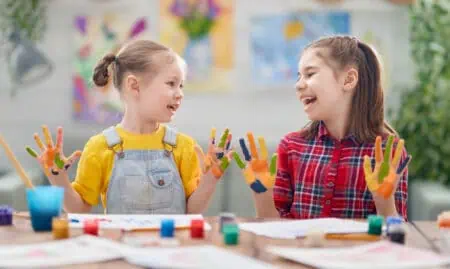Building a child’s self-esteem and resilience is one of the most important jobs we have as parents. Positive affirmations serve as powerful tools to help kids navigate big feelings and challenges.
This guide provides over 100 meaningful affirmations covering confidence, kindness, anxiety, and perseverance. By weaving these positive statements into your daily routine, you can help nurture a healthier, happier mindset in your child.
Key Takeaways
- Definition: Affirmations are short, encouraging phrases that help rewire the brain to overcome negative thoughts.
- Benefits: Regular practice can reduce stress, boost academic performance, and improve emotional regulation.
- Methods: Effective techniques include speaking them aloud in front of a mirror, writing them in a journal, or leaving notes in lunchboxes.
- Autonomy: Let children choose the phrases that resonate with them rather than forcing specific words.
103 Affirmations for Kids

Dictating which phrases your child “must” say often backfires. Instead, offer suggestions using age-appropriate language and let them pick the ones that stick.
We have categorized these affirmations to help you find exactly what your child needs right now:
For Self-Esteem and Confidence
Building a strong self-image starts with how kids talk to themselves.
- I am loved just as I am.
- I am enough.
- I matter.
- I am a leader.
- I deserve to be happy.
- It is okay to be myself.
- I do not have to change for other people.
- My opinion is important.
- I am good at being me.
- I am proud of myself.
- I am unique and special.
- I believe in myself.
- I am brave.
- I have great ideas.
- I am important.
- I love who I am.
- I am worthy of love.
- My voice matters.
- I am capable of amazing things.
- I deserve my success.
For Growth Mindset and Learning
Help your child understand that effort matters more than perfection.
- Mistakes are just opportunities to learn.
- It is okay to be wrong.
- I can do hard things.
- I will not give up.
- I haven’t figured it out yet.
- I can learn anything I set my mind to.
- Nobody is perfect, and that is okay.
- To achieve my goals, I must work hard.
- Practice makes progress.
- I will get there.
- I enjoy learning new things.
- I can learn in the way that is best for me.
- I do not have to achieve perfection.
- Challenges help me grow.
- I am smarter than I think.
- I solve problems creatively.
- My brain is growing every day.
- I ask for help when I need it.
- Trying my best is enough.
- I focus on my own progress.
For Anxiety and Fear
These phrases help ground children when emotions feel overwhelming.
- Everyone feels anxious sometimes.
- It is okay to be afraid.
- I am safe.
- I can take deep breaths to calm down.
- This feeling will pass.
- I am stronger than my fears.
- It is okay to ask for help.
- I can control my breathing.
- I have people who care about me.
- I am not alone.
- My worries do not control me.
- I choose to feel calm.
- I can handle this.
- One step at a time.
- It is okay to take a break.
- My peace is my power.
- I let go of what I cannot control.
- I trust myself.
- Everything will be okay.
- I am brave even when I am scared.
For Friendship and Social Skills
Navigating social dynamics is easier with a sturdy moral compass.
- I am a good friend.
- I treat others with kindness.
- It is okay to say no.
- I do not have to follow the crowd.
- I choose friends who support me.
- I stand up for others.
- I am a good listener.
- My friends enjoy my company.
- I forgive others and myself.
- I set healthy boundaries.
- I do not need everyone to like me.
- I attract positive people.
- I share with others.
- I help others achieve their goals.
- True friends tell each other the truth.
- I am kind to everyone.
- I respect other people’s differences.
- I can make a difference.
- I choose kindness over being right.
- I am a role model.
For Body Image and Health
Promote a healthy relationship with their physical self.
- My body is strong.
- I am grateful for what my body can do.
- I take care of myself.
- I love my smile.
- I am healthy and full of energy.
- My body deserves respect.
- I feed my body healthy food.
- I enjoy moving my body.
- I am beautiful inside and out.
- My worth is not defined by my appearance.
- I appreciate my unique features.
- I listen to what my body needs.
- I am comfortable in my own skin.
For Tough Days
When the clouds roll in, these affirmations provide a little sunshine.
- Bad days happen to everyone.
- Tomorrow is a fresh start.
- I can cry if I need to.
- My feelings are valid.
- This is just one moment in my life.
- I look for the good in today.
- I am resilient.
- I will not let this stop me.
- I am gentle with myself.
- I have gotten through hard days before.
- Happiness is waiting for me.
What Are Affirmations?

Simply put, affirmations are short, positive statements you repeat to yourself to challenge negative thoughts.
Think of them as exercises for your brain. Just as you do push-ups to strengthen your muscles, you say affirmations to strengthen your self-esteem and outlook (1).
While some people view affirmations as a way to “manifest” material items, we focus on the psychological benefits. This approach is about building a positive self-image and rewiring how a child perceives their own abilities.
The Science: Do They Really Work?
Yes, science backs this up. Research indicates that self-affirmation can activate the brain’s reward system and help buffer stress (2). It essentially leverages neuroplasticity, the brain’s ability to change and adapt.
However, consistency is key. Saying a phrase once won’t change a mindset overnight.
Note: Affirmations are not a cure-all. For children suffering from deep-seated trauma or severe low self-esteem, affirmations that feel “too far from the truth” can sometimes backfire. In these cases, professional support is the best path forward.
Benefits of Affirmations for Kids

When practiced regularly, affirmations can be a game-changer for a child’s development.
Research suggests they help with:
- Emotional Regulation: Reducing stress, frustration, and anxiety.
- Healthy Habits: Encouraging physical activity and better self-care.
- Academic Success: boosting confidence in schoolwork and problem-solving.
- Resilience: Helping kids bounce back from failure or mistakes.
- Focus: improving perseverance when tasks get difficult.
How to Use Affirmations for Kids

Timing is everything. Never force a child to recite affirmations when they are in the middle of a meltdown.
Wait until they are calm and receptive. This might be during the car ride to school, at the dinner table, or right before bed.
Be authentic. If you constantly tell your child they are “the best artist in the whole world,” they will eventually realize it isn’t true, which can damage trust. Instead, focus on effort: “I love how hard you worked on that drawing.”
Here are creative ways to integrate affirmations into your child’s life:
- The Affirmation Binder: Create a scrapbook together. Fill it with photos of their achievements, happy memories, and written affirmations. It becomes a physical tool they can open whenever they feel low.
- Mirror Work: Encouraging your child to look themselves in the eye in the mirror and say, “I am smart, I am kind,” is incredibly powerful. It might feel silly at first, but it builds deep self-acceptance.
- Lunchbox Surprise: A little note goes a long way. Slip a handwritten affirmation into their lunchbox or under their pillow to remind them they are loved even when you aren’t there.
- Goal Setting: If your child wants to achieve something, break it down. Pair practical steps with supportive phrases. For example, “I practice soccer every day, and I am getting better every day.”
- Journaling: For older kids, writing is therapeutic. Encourage your child to write down three positive things about themselves in their own journal every night.
FAQs
Repeat After Me

Affirmations are more than just happy words; they are tools for building a resilient, confident mind.
By helping your child find the phrases that truly resonate with them, you are giving them a coping mechanism they can carry into adulthood. Start small, keep it fun, and watch their inner voice transform into their biggest cheerleader.






